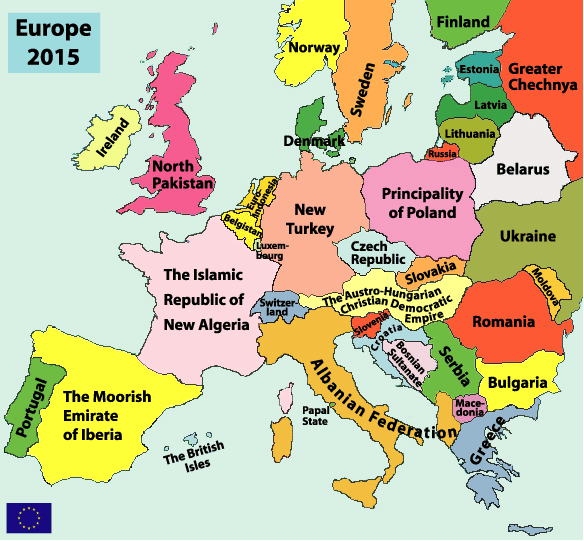| March 30, 2005 Britain's plan to save planet from quakes and asteroids |
PLANS for an early warning system to protect the world against natural disasters ranging from earthquakes and tsunamis to asteroid strikes have been drawn up by the Government’s chief scientist on the orders of the Prime Minister. A panel headed by Professor Sir David King is recommending that Britain push for a global alarm network to reduce the potential devastation of events such as the Boxing Day tsunami, The Times has learnt. The £100 million initiative, which comes as scientists predict a third major earthquake in Indonesia, is the strongest recognition yet given by a government to the risks of natural catastrophes — including space collisions and “supervolcanic” eruptions, which occur only at intervals of tens of thousands of years. Tony Blair, who commissioned Professor King’s report after the December tsunami that killed 300,000, is expected to press the G8 industrialised nations to adopt it at the Glen-eagles summit in July. Professor King said that the Prime Minister had been very interested in the Natural Hazard Working Group’s progress, and that the need for action had been underlined by the earthquake that killed more than 1,000 in Sumatra on Monday. “Because the public are so sensitised to the issue of natural hazards, this is the moment to put in not just an Indian Ocean tsunami early warning system, but something that is global,” he told The Times. “We have to set up an early warning system which has no boundaries, covering all physical and natural hazards: earthquakes, tsunamis, volcanoes and near-Earth objects (asteroids and comets).” The risk of further shocks around Indonesia has added fresh impetus to the proposal. Scientists gave warning yesterday that the earthquake may have destabilised a nearbv fault. The Sumatra fault, which was under increased stress after the magnitude 9.3 quake that triggered the Boxing Day tsunami, runs beneath the devastated city of Banda Aceh. Professor King’s group of leading seismologists, vulcano-logists and asteroid experts will urge the G8 to commit to a wideranging system that could give warning of many different threats. It would include global seismic detectors, tsunami alarm buoys in every ocean, increased monitoring of active volcanoes and tracking of asteroids and comets with the potential to collide with the Earth. Details of where money would best be spent would be worked out by an international committee modelled on the Intergovernmental Panel on Climate Change, which advises politicians on global warming. “The need for good, current, up-to-date advice from the scientific community has become very apparent over the past couple of months, and there is no vehicle that can do this at present,” Profesor King said. The Natural Hazard Working Group puts the basic cost at £70 million to £140 million. Professor King said that the Gleneagles meeting, which will be attended by developing countries, would be the ideal forum for the initative. “We have the G8 presidency, and at the meeting in Scotland it will not just be the G8 but the Prime Minister has also invited China, India, Brazil, South Africa and Mexico,” he said. “It seems to me to be a perfect venue to push this.” Professor Bill McGuire, of University College London, a member of Professor King’s panel, said: “We are talking about very big-scale paraglobal threats. Some may be very long term, but there really is a need for something like this.” Monday’s earthquake was forecast two weeks ago by scientists at the University of Ulster, who discovered that the Boxing Day rupture along the Sumatra-Andaman fault had placed extra stress on the region of the Sunda Trench fault where the latest quake began. The researchers also found added pressure along the Sumatra fault under the northern part of the island, and were last night calculating whether this had now built up further after Monday’s earthquake. John McCloskey, who led the team, said: “My main concern is the Sumatra fault, which was heavily stressed already.” A more southerly section of the Sunda Trench could also have been destabilised, which might trigger tsunamis affecting southern Sumatra, Java and northern Australia. About a dozen Britons have been reported missing in the area affected by the earthquake. The Foreign and Commonwealth Office emphasised that this did not mean they had all been caught up in the aftermath of the quake. |






